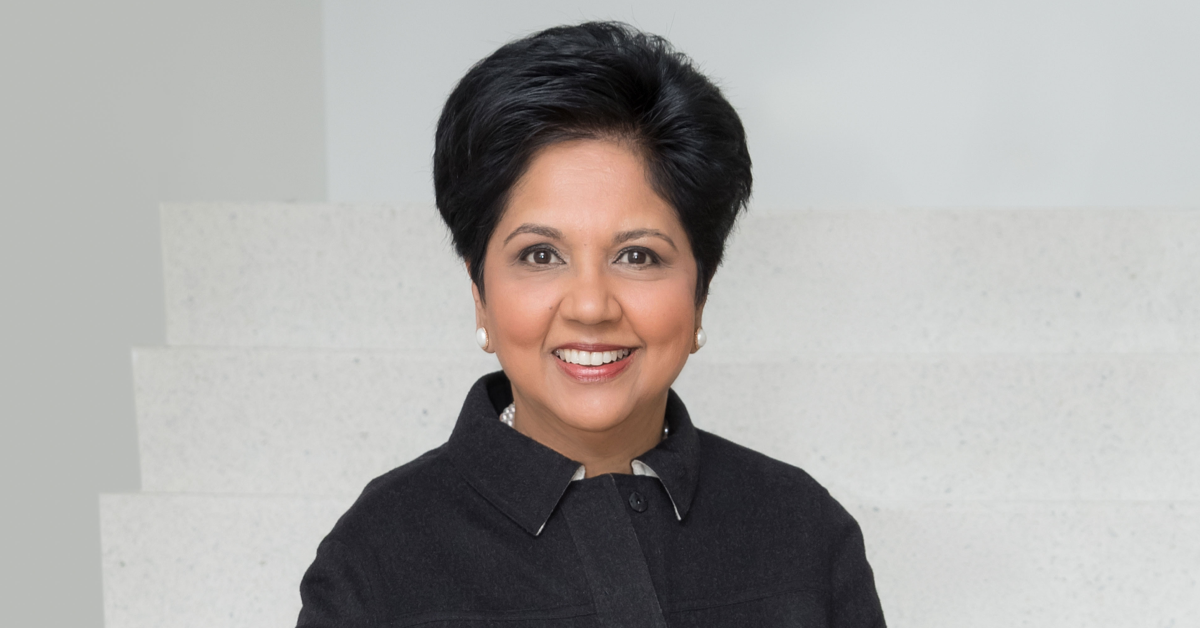In her 12 years as Chairman and CEO of PepsiCo, Indra Nooyi was responsible for steering the Fortune 50 company toward a healthier and more sustainable future, all while nearly doubling its revenue. This legacy has established her as one of the most influential people in the world — and one of our community's most requested speakers.
In a Chief-exclusive conversation, Nooyi sat down with Chief Member Fidji Simo, Instacart's CEO, to share an inside look at the purpose that fueled her success, her current work on the issue of care, and how today's executives can drive real change throughout their organizations.
On Why Social Responsibility Isn't Enough
"Don't call it a social responsibility, talk about it as having a business model that's responsible," Nooyi said. "I would say the same for D&I. I think some people appoint a D&I officer and say, 'It's done. I got a D&I officer.' Everybody has to own D&I. It starts with the CEO and goes down. It should be in their incentive. It should be part of their whole recruiting and talent development zeitgeist. It can't be, 'Talk to the D&I person.' No, I'm the leader of my business, I own it.
"The D&I head can do the mechanics, but the spirit and the emotion behind D&I has to be owned by every line manager. They have to make it happen because, as I've said often, diversity is a number, inclusion is a mindset. The mindset has to be right."
On Building an Inclusion Mentality
"Why are we talking about women differently than the men? If you want to hire the best talent, you've got to hire from the whole pool equally, not start by saying, well, 'I have 10 jobs, I've got two women, that's plenty.' You can't do that. You've got to just say, 'I want the best talent.' I honestly believe that, if you go for the best talent and have the employee base in your company reflect the available talent outside, you will actually end up with a diverse pool.
"But then it's not just the diverse pool, it's how do you make the diverse pool feel wanted and welcome? That is where we fall apart. We all have good diversity programs, we go out and recruit people, and then for some reason we make them feel like they don't matter or they don't matter as much. If we don't work on this whole mindset change, we're putting more and more of the onus on women and people of color. Because when they come in, by not treating them as one of the others, you're stripping away their confidence, and once you take away the confidence, their competence gets impacted."
On Shaping Diverse Boards
"If you shape the board, you should add this matrix of, 'What capabilities does the company need in the future?' And 'What capabilities exist in the board members?' and 'Where are the outages?' That will force you to refresh the board regularly. While you're refreshing the board against capability, you should also add a lens for, 'Do we have diversity on the board?"
On Defining Your Brand as a Leader
"Ask yourself, especially if you want to move up the corporation, what is your brand? When they are sitting in a boardroom or a performance appraisal room, and they're talking about you, what would they say is your unique contribution to the company? You have to decide your proposition and you have to keep on reinforcing the proposition all the time."
For her own part, "It's really how others describe my brand, because at the end of the day, whatever I describe may not be the way others see me," Nooyi said. "In my case, it was, 'Take the hardest part. Give it to Indra. She'll do two things. She'll demystify the complex and for sure she'll come up with an answer, or she'll come up and tell us why it is not a solvable problem, but you can take it to the bank.'"
On the Importance of Childcare for Essential Workers
"Based on how the future of work evolves, we need to have childcare facilities near the home, near the office — it may not be inside an office because people may not come to the office all the time. We have to figure out the best places to put in childcare.
"My bigger concern is essential workers. During the pandemic, they didn't have the choice to stay home. Nobody talked about care for the caregivers. Nobody talked about non-traditional hours, people who work evening and night shifts. How are they supposed to take care of their kids? I think the time has come for us to recognize that most of these jobs of the future, of essential workers, are female-oriented jobs. If we don't provide a support structure for them, for their families and for their kids, then we're doing a big disservice to those people. We're not giving them the chance to rise."
